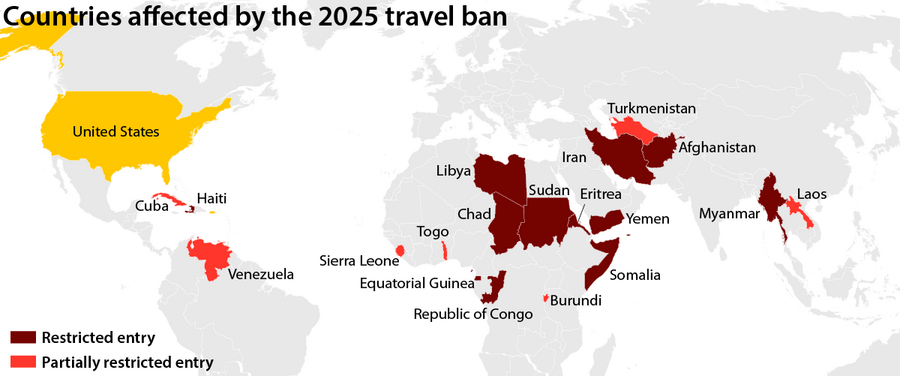Russia struck Kyiv with a missile and drone attack. Mayor Vitali Klitschko said search and rescue operations were underway at several locations after a Russian attack on the capital early Friday killed at least three people and injured 20 others. It was part of a wider overnight assault. – The Associated Press
Aid distribution resumed in Gaza. The Gaza Humanitarian Foundation said Thursday it was reopening two sites one day after shutting them following a series of deadly shootings near its operations. The group, which has been fiercely criticized by humanitarian organizations, said it was pressing Israeli forces to improve civilian safety beyond the perimeter of its operations. – Reuters
The Supreme Court made it easier to sue for “reverse discrimination.” A unanimous decision Thursday sided with an Ohio woman who said she was passed over for promotions because she is straight. The decision affects lawsuits in 20 states and the District of Columbia where courts had set a higher bar when members of a majority group sue for discrimination under federal law. Justice Ketanji Brown Jackson wrote that federal civil rights law draws no distinction between members of majority and minority groups. – AP
Mexico’s landmark gun case reached the U.S. Supreme Court. Some 70% of weapons used in crimes inside Mexico are traced to the United States. Mexico argued that U.S. firearms manufacturers know their products are trafficked across the border, and profit from it. The high court ruled that an industry shield law protects gunmakers from the suit, but rejected arguments that the industry could never be blamed for damage caused by its guns in Mexico, opening the possibility that it could be held accountable in future cases. – Staff
New Zealand suspended lawmakers who performed a haka protest. The lawmakers from Te Pāti Māori, the Māori Party, performed the chanting dance of challenge in November to oppose an unpopular bill, now defeated, that they said would reverse Indigenous rights. One lawmaker received a seven-day ban and the leaders of the Māori Party were barred for 21 days. The longest previous ban for a lawmaker from New Zealand’s Parliament was three days. The protest provoked months of debate among lawmakers about the place of Māori culture in Parliament. – AP
Scientists reported record levels of carbon dioxide in the atmosphere. Researchers at Hawaii’s Mauna Loa Observatory calculated a monthly average of more than 430 parts per million for May. Before the world began burning fossil fuels for energy, scientists say the average atmospheric concentration was a fraction of that, at 280 parts per million. Carbon dioxide traps heat in the Earth’s atmosphere. Despite widespread awareness about global warming, global emissions continue to rise. The U.S. has slowly reduced its emissions for the past 20 years. Still, Americans are responsible for the most carbon emissions per person. – Staff
Cockatoos have learned to drink from water fountains. In the suburbs of Sydney, Australia, researchers caught the sulfur-crested cockatoos taking turns to twist and hold the handle at public fountains, just as humans do. While less than half the attempts ended with a successful sip of water, the birds seem to be learning street skills not just for survival, but also for fun. More studies, including on baboons that walk in lines formed by friendship, are showing that animals are more playful than we might think. – Staff













